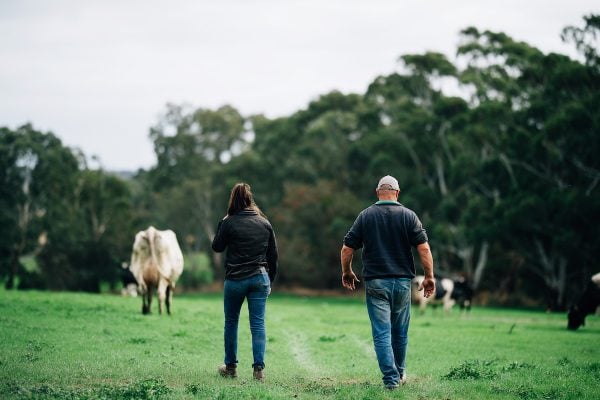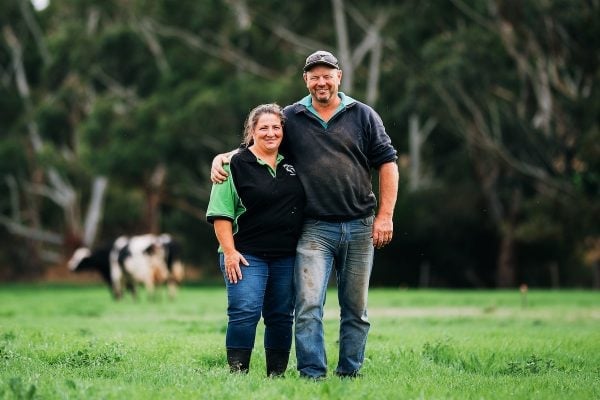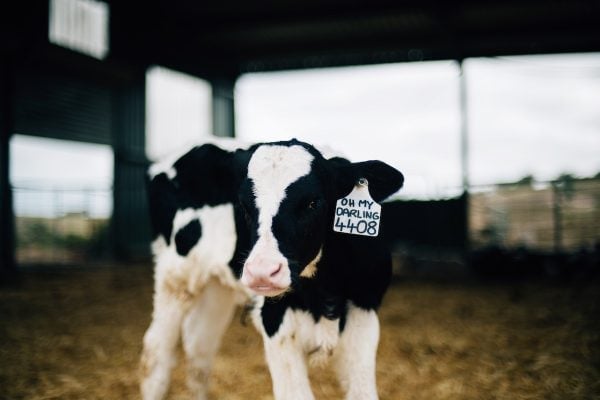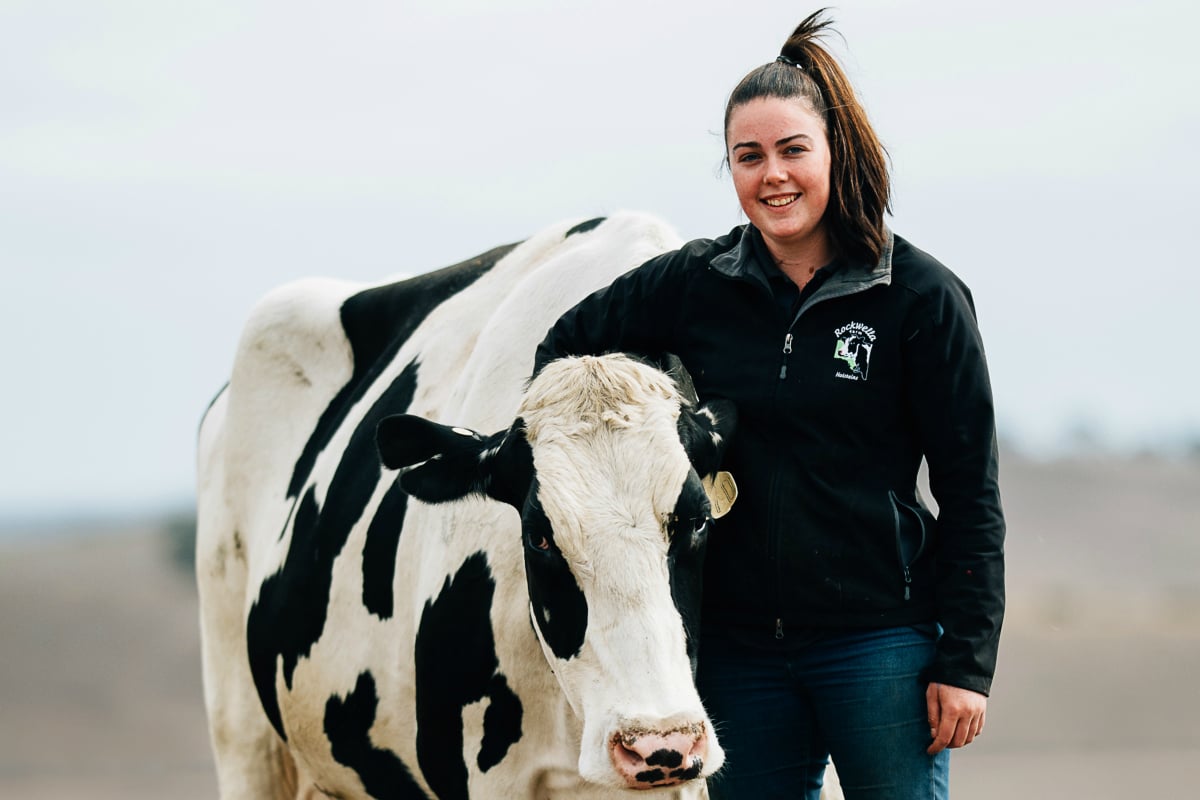
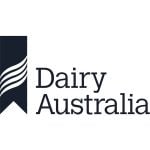
Where I live, if I take the back road to Byron Bay around 3pm I’ll be stopped by a man and his cows.
They fill the road as they move from their grazing paddocks to the milking sheds. As consumers we don’t often think about who the people are that grow or produce our food, but coming face to face with a bunch of cows really makes you think.
This is how I get milk on my table. This man got up at 4am this morning, and has done for all of his farming life.
It’s a lifestyle a lot of Australians don’t come into contact with directly, so there are naturally some preconceptions people have about the responsibilities and challenges of running a dairy farm.
I spoke to Ebony King, a 21 year old (pictured above) who works on a dairy farm run by Wes and Rita Hurrell in Yankalilla in South Australia.
Ebony helps with the day-to-day running of the farm, which includes implementing strict practices around animal welfare and environmental sustainability.
“Some people think dairy farmers don’t care about or love their cows and that they treat them poorly. We do everything we can to keep our cows happy and healthy,” Ebony tells Mamamia. “They have us looking after them 24/7. And we have a vet who is always on call. They even have a nutritionist.
“Yes, it is a business. But if we didn’t look after and love our cows then they wouldn’t produce quality milk.”
